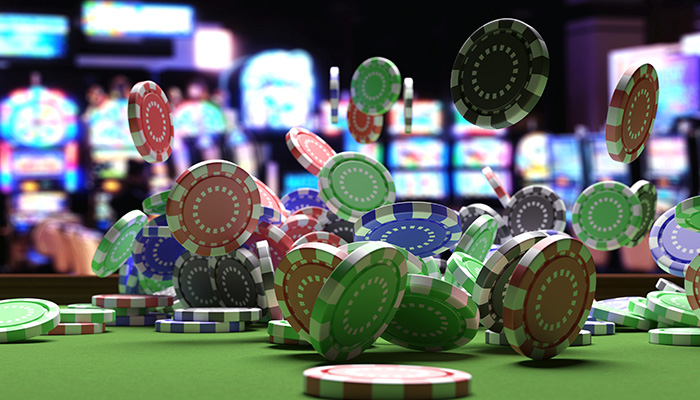
Within the vibrant realm of gambling halls, in which the atmosphere buzzes with enthusiasm and the clinking of chips permeates the environment, the position of a dealer is both essential and fascinating. Ga179 Daily, these skilled professionals step into a world where luck and tactics intertwine, guiding players through the highs and lows of their selected casino games. From table games like 21 and texas hold ’em to the spinning wheels of the roulette table, dealers facilitate the action while guaranteeing that every game runs seamlessly and fairly.
As the day breaks on another hectic day, a casino dealer prepares to immerse themselves in this vibrant setting. Their duties extend beyond just distributing cards or turning a roulette wheel; they are also performers, service providers, and keepers of the rules. Each shift brings new challenges and interactions, making every day distinct in the life of a casino dealer. This behind-the-scenes look will examine the daily routine of a casino dealer, highlighting the expertise and experiences that make this career both exciting and rewarding.
The Role of a Casino Game Croupier
A casino game croupier is at the heart of the gambling experience, managing the progress of the game while ensuring that players are engaged and enjoying themselves. Their main duty is to manage the game, which involves distributing cards, spinning the wheel, or managing the chips, depending on the game being played. Dealers must possess a thorough understanding of the regulations and guidelines governing each game, while also maintaining a welcoming and approachable demeanor to enhance the gambling atmosphere.
In addition to overseeing the play, croupiers must also monitor on the players and the environment around the table. This entails watching for any indications of cheating, ensuring that everyone is adhering to the rules, and addressing any conflicts that may arise among players. Effective communication skills are essential, as dealers often provide explanations about the game’s mechanics and offer assistance to those who may be novice to gambling games.
Moreover, a dealer’s role extends beyond just the technical aspects of the play. They play a key part in creating an immersive experience for the players. This requires establishing a connection with patrons, being attentive to their wants, and often adding an element of entertainment into the play. It’s this mix of skill, alertness, and interpersonal relationship that makes the position of a casino game dealer both demanding and rewarding in the vibrant world of gambling games.
Daily Responsibilities and Challenges
One of the primary responsibilities of a dealer in a casino is to supervise the various games available at their table, guaranteeing a seamless and satisfying experience for players. Dealers must be proficient at dealing cards, managing chips, and maintaining the flow of the game. This necessitates a deep understanding of the regulations of each game, from blackjack to roulette, and the ability to address players’ questions while keeping the game moving. Attention to detail is essential, as dealers must monitor bets, disburse winnings accurately, and monitor any cheating or discrepancies at the table.
In addition to managing the game per se, dealers face challenges such as managing difficult players. The casino environment can be tense, particularly during intense games, and a dealer must remain composed and maintain professionalism at all times. They need strong interpersonal skills to navigate interactions with players who may be frustrated about losses or dissatisfied with the game’s pace. Navigating these situations delicately is important in ensuring a friendly atmosphere on the casino floor.
Another significant responsibility is maintaining the honesty of the game. Dealers must be alert and attentive, watching for any signs of collusion or cheating among players. This entails not only a strong knowledge of the games but also an awareness of human behavior. They must also follow the casino’s regulations and procedures, participating in regular training sessions to keep updated on rules and protocols. Balancing these responsibilities while providing excellent customer service is what makes the role both difficult and fulfilling for a casino game dealer.
Attributes and Qualities for Success
A proficient casino game dealer must demonstrate superior communication skills. This includes not only the ability to effectively explain game rules and procedures to gamblers but also the capacity to interact with them in a cordial and competent manner. Cultivating rapport with patrons can enhance the gaming experience and promote repeat visits to the casino. Effective communication enables dealers to manage tables efficiently while ensuring that players feel appreciated.
Furthermore, strong mathematical skills are essential for a dealer. Quick math are often required to keep track of bets, payouts, and game outcomes in real-time. A dealer’s ability to perform these numerical tasks accurately and swiftly promotes to the overall efficiency of the game. This skill helps in maintaining the flow of play and in minimizing disputes or misunderstandings with players, which is crucial in a dynamic casino environment.
Lastly, an ideal casino game dealer should exhibit integrity and professionalism at all times. Trust is a crucial component of the gaming experience, and players must feel assured that the games are conducted fairly and clearly. A dealer’s devotion to upholding high ethical standards fosters a positive atmosphere at the table and enhances the casino’s standing. Being dependable in behavior ensures that dealers leave a enduring impression on guests, which can lead to a loyal customer base.

